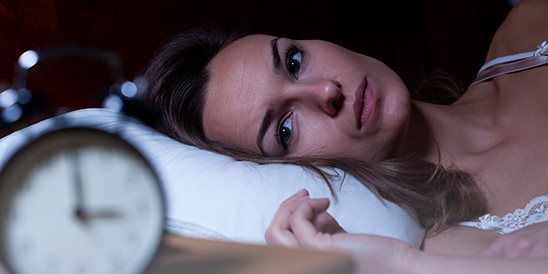Chronic insomnia is a pervasive problem affecting millions globally, characterized by difficulty falling or staying asleep despite having the opportunity to sleep. This condition not only impairs daily functioning but also has significant health implications, including increased risks of cardiovascular disease, obesity, diabetes, and mental health disorders. Fortunately, scientific advancements have yielded a variety of effective, evidence-based solutions for managing and curing chronic insomnia.
Understanding Chronic Insomnia
Before delving into the solutions, it’s crucial to understand chronic insomnia’s nature. Chronic insomnia is defined as experiencing sleep disturbances at least three times per week for three months or longer. Unlike occasional sleepless nights, chronic insomnia is persistent and can significantly impact overall health and quality of life. It can stem from various factors, including stress, anxiety, depression, medication side effects, and underlying medical conditions.
Cognitive Behavioral Therapy for Insomnia (CBT-I)
Cognitive Behavioral Therapy for Insomnia (CBT-I) stands out as one of the most effective treatments for chronic insomnia be cured. CBT-I is a structured program that helps individuals identify and replace thoughts and behaviors that contribute to sleep problems. This therapy is evidence-based and has been extensively studied, showing long-term benefits in improving sleep quality and reducing insomnia symptoms.
CBT-I typically involves several components:
Sleep Education:
Understanding the basics of sleep, including sleep architecture and hygiene.
Cognitive Restructuring:
Addressing and changing negative thoughts and misconceptions about sleep.
Behavioral Interventions:
Incorporating strategies such as sleep restriction (limiting time in bed) and stimulus control (associating the bed with sleep rather than wakefulness).
Relaxation Techniques:
Employing methods like progressive muscle relaxation, deep breathing exercises, and mindfulness to reduce pre-sleep anxiety.
Studies have demonstrated that CBT-I can lead to substantial improvements in sleep latency, sleep efficiency, and overall sleep quality. Furthermore, it often provides long-lasting benefits, making it a cornerstone in the management of chronic insomnia.
Pharmacological Treatments
Pharmacological treatments are often considered for short-term relief or when other interventions are not effective. Various medications, including benzodiazepines, non-benzodiazepine sleep aids, and antidepressants, have been prescribed to manage insomnia. However, these medications come with potential risks and side effects, such as dependency, tolerance, and withdrawal symptoms.
Benzodiazepines:
These medications, like diazepam and lorazepam, are effective in promoting sleep but are generally recommended for short-term use due to the risk of dependence.
Non-Benzodiazepine Sleep Aids:
Drugs such as zolpidem and eszopiclone are often prescribed for their sleep-inducing effects with a potentially lower risk of dependence compared to benzodiazepines.
Antidepressants:
Certain antidepressants, such as trazodone and amitriptyline, are used off-label for their sedative effects, particularly in patients with coexisting depression or anxiety.
It’s essential for individuals to consult healthcare providers to evaluate the risks and benefits of these medications, considering that pharmacological treatments are generally more suitable for short-term or adjunctive use rather than long-term solutions.
Lifestyle Modifications and Sleep Hygiene
Incorporating lifestyle modifications and practicing good sleep hygiene are fundamental aspects of managing chronic insomnia. These changes aim to create an optimal sleep environment and routine. Key recommendations include:
Maintaining a Regular Sleep Schedule:
Going to bed and waking up at the same time every day helps regulate the body’s internal clock.
Creating a Relaxing Pre-Sleep Routine:
Engaging in calming activities before bed, such as reading or taking a warm bath, can signal the body that it’s time to wind down.
Optimizing the Sleep Environment:
Ensuring a comfortable and conducive sleep environment by keeping the bedroom dark, quiet, and cool.
Limiting Stimulants:
Reducing intake of caffeine, nicotine, and alcohol, particularly in the hours leading up to bedtime.
Physical Activity:
Regular exercise can promote better sleep, but it’s advisable to avoid vigorous exercise close to bedtime.
Light Therapy and Melatonin
Light therapy and melatonin supplements offer additional science-based solutions for managing chronic insomnia, particularly when related to circadian rhythm disorders.
Light Therapy:
Exposure to bright light in the morning can help regulate the circadian rhythm and improve sleep-wake cycles. Light therapy is particularly beneficial for individuals with delayed sleep phase disorder or seasonal affective disorder (SAD).
Melatonin Supplements:
Melatonin, a hormone that regulates sleep-wake cycles, can be taken as a supplement to aid sleep onset. It is most effective when used to adjust sleep timing in cases of circadian rhythm disorders, such as shift work sleep disorder or jet lag.
Conclusion
Chronic insomnia is a complex condition with multifaceted solutions. Science-based treatments, including Cognitive Behavioral Therapy for Insomnia (CBT-I), pharmacological options, lifestyle modifications, and interventions like light therapy and melatonin, offer a range of effective strategies to manage and cure chronic insomnia. By understanding the underlying causes and employing evidence-based approaches, individuals can achieve better sleep quality and overall well-being. As always, it is essential for individuals to consult healthcare professionals to determine the most appropriate treatment based on their unique circumstances and health conditions.



